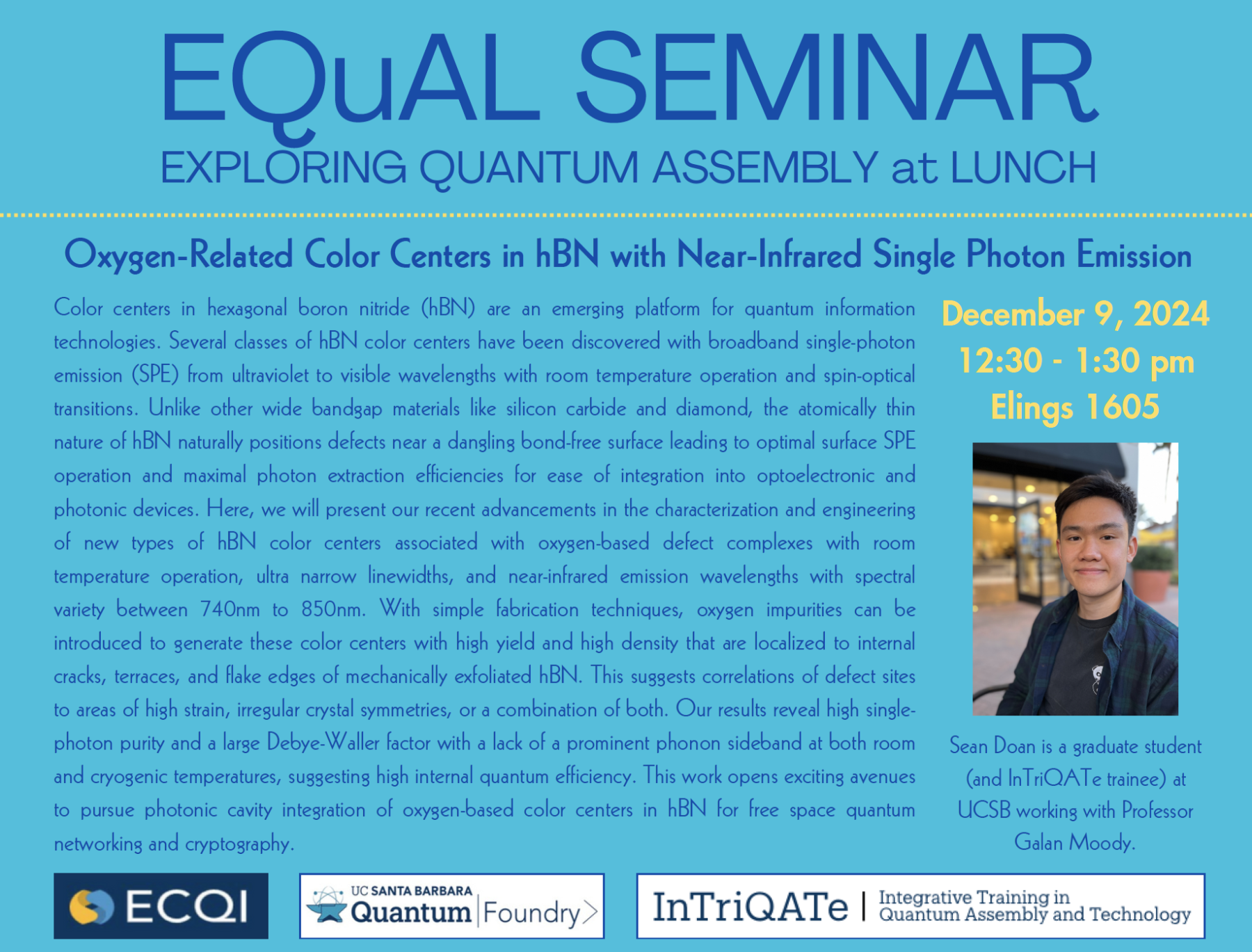EQuAL Seminar: Sean Doan

Oxygen-Related Color Centers in hBN with Near-Infrared Single Photon Emission
Color centers in hexagonal boron nitride (hBN) are an emerging platform for quantum information technologies. Several classes of hBN color centers have been discovered with broadband single-photon emission (SPE) from ultraviolet to visible wavelengths with room temperature operation and spin-optical transitions. Unlike other wide bandgap materials like silicon carbide and diamond, the atomically thin nature of hBN naturally positions defects near a dangling bond-free surface leading to optimal surface SPE operation and maximal photon extraction efficiencies for ease of integration into optoelectronic and photonic devices. Here, we will present our recent advancements in the characterization and engineering of new types of hBN color centers associated with oxygen-based defect complexes with room temperature operation, ultra narrow linewidths, and near-infrared emission wavelengths with spectral variety between 740nm to 850nm. With simple fabrication techniques, oxygen impurities can be introduced to generate these color centers with high yield and high density that are localized to internal cracks, terraces, and flake edges of mechanically exfoliated hBN. This suggests correlations of defect sites to areas of high strain, irregular crystal symmetries, or a combination of both. Our results reveal high single- photon purity and a large Debye-Waller factor with a lack of a prominent phonon sideband at both room and cryogenic temperatures, suggesting high internal quantum efficiency. This work opens exciting avenues to pursue photonic cavity integration of oxygen-based color centers in hBN for free space quantum networking and cryptography.